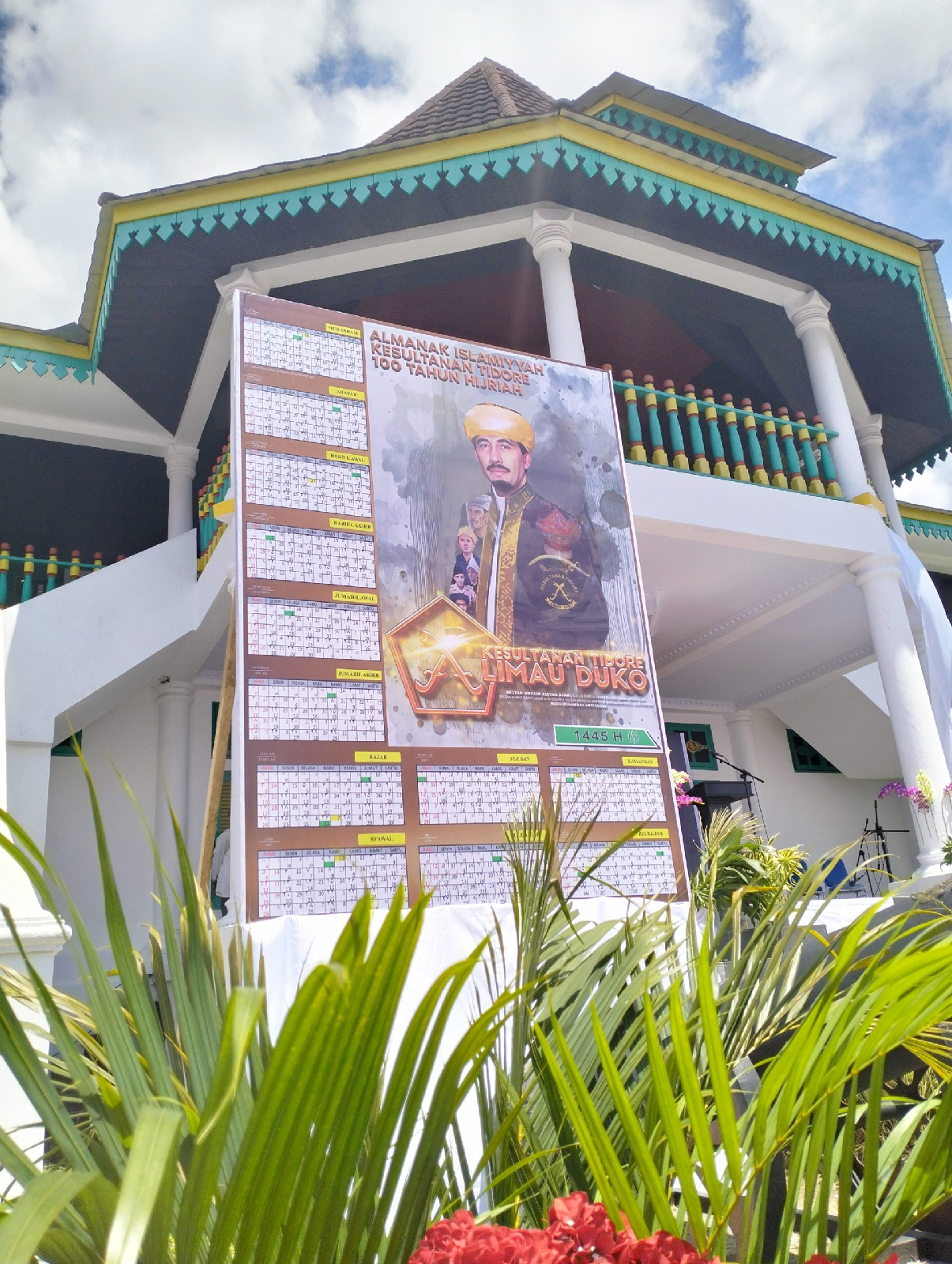The Origins of Tidore: A Name Forged in Peace
Tidore, an island nestled in the Maluku archipelago, holds a fascinating and long-standing history—one shaped not only by its geography but also by a unique cross-cultural encounter that defined its identity. Before it was known as Tidore, the island bore the name Kie Duko, which means "volcanic island." This name aptly described the island’s terrain, dominated by Mount Marijang—the highest volcano in the Maluku region, though now dormant.
However, the story of Tidore’s name is rooted in more than just physical features. It originates from a moment of ancient diplomacy, said to have taken place around the year 846 AD. At that time, Tidore was plagued by internal conflicts among momole, the local chieftains, each backed by their tribal communities. These power struggles often turned violent, with failed attempts at reconciliation prolonging the chaos.
During this troubled period, a delegation arrived from afar. They were emissaries from the Abbasid Caliphate in Baghdad, led by a religious figure named Sheikh Jacob, part of the envoy of Ibn Chardazabah, representing Caliph al-Mutawakkil. Their arrival in Tidore was believed to be part of a broader mission involving trade and religious outreach, carrying a message of peace to the eastern edges of the archipelago.
Observing the strife among the momole, Sheikh Jacob proposed a peaceful resolution. He initiated a meeting, known locally as Togorebo, to be held at a large boulder at the foot of Mount Marijang. It was agreed that whichever momole arrived at the meeting place first would be declared the victor and lead the discussion.
On the day of the meeting, the momole from different corners of the island rushed to the site. Each of them shouted "To re ado," which in the Tidore language means "I have arrived." This exclamation reflected their eagerness to claim the role of mediator and leader.
However, things did not go as expected. Many of the momole arrived at nearly the same time, leading to confusion over who had truly arrived first. The dispute threatened to reignite. In the midst of this, Sheikh Jacob arrived, and in his Iraqi Arabic dialect, he said, "Anta thadore," meaning "you have arrived."
That moment proved to be a turning point. Since no momole could legitimately claim victory, and due to Sheikh Jacob’s neutral stance and wisdom, all parties agreed to appoint him as the leader of the meeting. His ability to mediate earned him respect, and the meeting concluded peacefully under his guidance.
From this unique incident, a new term was born—Tidore. It was a fusion of the two phrases: "To re ado" from the local tongue and "Anta thadore" from Arabic. The combined phrase gradually evolved into “Tidore,” a word that symbolizes arrival, unity, and peace.
From that moment on, the name Tidore replaced Kie Duko as the island's name. It soon became more than just a geographic designation—it was the identity of a powerful kingdom that rose from the foundations of reconciliation and diplomacy.
This name change reflects how cultural exchanges in the past were not limited to trade or religion but extended to shaping local identities. Tidore became a lasting testament to a peaceful merging of different civilizations.
Mount Marijang, though no longer active, remains a silent witness to that historic event. It stands tall as a reminder that peace and leadership were once forged at its base.
The story of Sheikh Jacob and the Togorebo meeting lives on in oral traditions, cultural ceremonies, and the pride of the Tidore people. It is a vital part of their collective memory and identity as a once-sovereign kingdom.
Today, the name Tidore resonates far beyond the island itself. It represents a legacy of diplomacy, a peaceful resolution, and the coming together of distant lands in a shared moment of history.
As modernization sweeps through the archipelago, the origins of Tidore serve as a reminder that dialogue and unity are timeless solutions to conflict. It is a lesson worth passing down through generations.
With its deep historical roots, Tidore holds an important place not only on Indonesia’s map but also in the cultural and civilizational fabric of the nation. A small island bearing a great story of peace.













